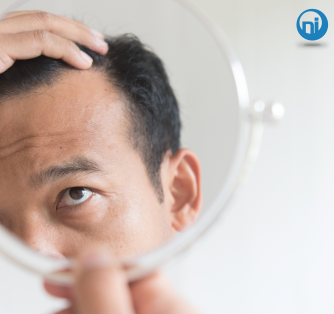Menu
Weight loss
Hormones
Sex
EXPLORE
MEET NU IMAGE MEDICAL
TREATMENTS
MEET NU IMAGE MEDICAL
TREATMENTS
MEET NU IMAGE MEDICAL
Overworked? How It Can Change You From The Inside Out


The 1980s were a peak time for big hair, crazy windbreakers and the 1981 Loverboy hit, “Working for the Weekend.” And while all three of these phenomena have blissfully faded from our daily culture, the reasoning behind each of these fads still remains. We love making a statement with crazy mermaid hair, we can value comfort over style and we’re still working for the weekend. Well, at least some of us are.
According to a 2017 Gallup poll, the average American works 47 hours a week – seven hours more than the standard 40-hour workweek. This boils down to 9.4 hours a day for those working standard office jobs. People working in tech and finance work more than 60 hours a week (more than 12 hours a day) and American factory workers are logging more than 72 hours a week.
It’s clear that today’s culture expects workers to be constantly connected. Logging overtime can be praised and responding to emails on your off day is almost required. But these long hours can have serious consequences when it comes to your health. Here are a few potential side-effects to your hectic work schedule.
1. Physical Health
Most workers spend their workdays sitting in a slightly uncomfortable desk chair and staring at a computer screen. This means that aside from a few bathroom trips, you remain sedentary for eight or more hours a day. Harvard Health has found that this daily inactivity could cause back pain, obesity, diabetes r cardiovascular disease. If that’s not terrifying enough, check out this 2017 study from Columbia University. They discovered that people who sit for 13 hours a day are twice as likely to die prematurely than those sitting 11 hours a day.
Additionally, finding time to exercise before or after work can be complicated when factoring in clothing changes and long commutes. And when you’ve had a stressful day, the last thing you want to do is jump on the treadmill and run five miles. But exercise could combat some of your work stress. Job anxiety is categorized as chronic stress by the Mayo Clinic and could increase your risk for strokes or cancer. Put forth the effort and get your body moving throughout the workday. Invest in a standing desk, take a walk around the park during your lunch break or start biking to the office.
2. Appearance
It’s commonly known that stressful situations are not kind to your skin, but a recent study from South Korea found it also might not be good for your hair. This 2019 study discovered that men who worked more than 52 hours a week began losing their hair much faster than those working less than 40 hours a week. Scientists believe that this onslaught of hair loss, called alopecia, could be caused by heightened stress levels combined with a lack of vacation time.
Work-related stress is also written across your face like an oily love letter to your taxing office job. When faced with ongoing stress, your face will start producing oil and your teenage acne rears its ugly head. On top of that, your skin could turn dull and lifeless — not great when that stress is also giving your wrinkles and gray hairs.
3. Mental Health
According to a study conducted by PLOS, people who work more than 11 hours a day are more likely to have more severe depression than those working only eight hours. This is because the long workdays leave you with less time to sleep and relax. Since the average American needs between seven and nine hours of sleep a night, many people working overtime have to go straight to bed in order to reach their REM quota. And for many people, that’s not always possible. If you go two nights without a full night’s sleep, you’ll start experiencing symptoms of sleep deprivation, which in turn can cause depression and anxiety.
Additionally, working overtime removes the stability of the standard 9-to-5 job. Scientists have discovered that long hours greatly affect your cognitive abilities. After a few days of altered sleep and an unstable schedule, you might have trouble remembering and retaining information.
The American workplace praises overworking, especially since technology grants constant connection, even after the workday ends. But your mental and physical health is more important than getting a little ahead in the office. If you’re concerned that you’re being overworked, speak to your supervisors about the workplace culture. You should be encouraged to foster a work-life balance and not be pressured to give up any of your vacation days. In the long run, an overworked employee will have lower levels of productivity since they’re overpowered with fatigue.
At the end of the day, you should be listening to your body's needs when it comes to the workweek. Know when to stop burning the midnight oil and make sure your evenings are full of relaxation. You’ll return the next day refreshed and renewed.
Nu Image Medical® offers a new and futuristic approach to achieving optimal health and wellness. The company has been a weight loss, anti-aging and wellness provider since 2004 and offers medically supervised programs for medical weight loss, peptides, erectile dysfunction, scream cream, and hair loss (NuDew)
This article is for informational purposes only and does not constitute medical advice. The information contained herein is not a substitute for and should never be relied upon for professional medical advice. Always talk to your physician about the risks and benefits of any treatment. Nu Image Medical may not offer the medications or services mentioned in this article.
